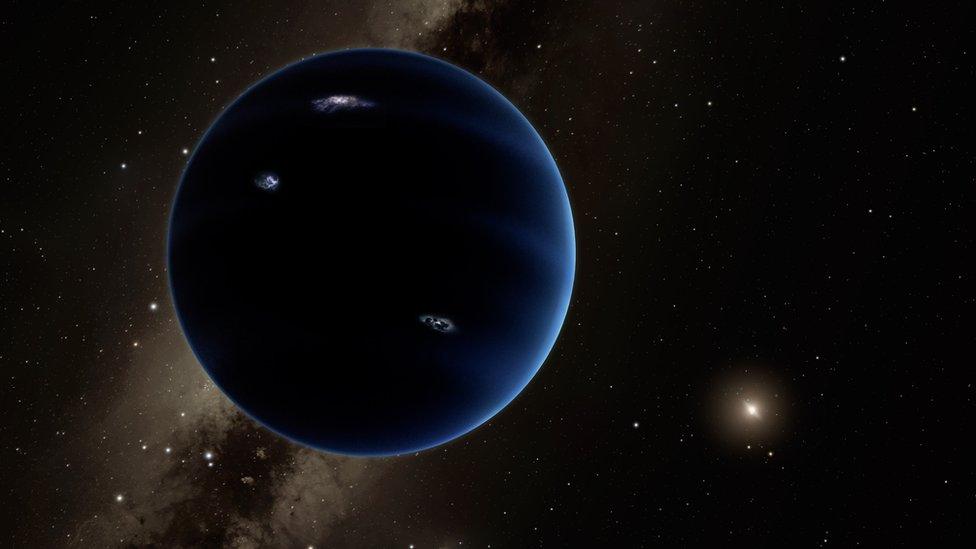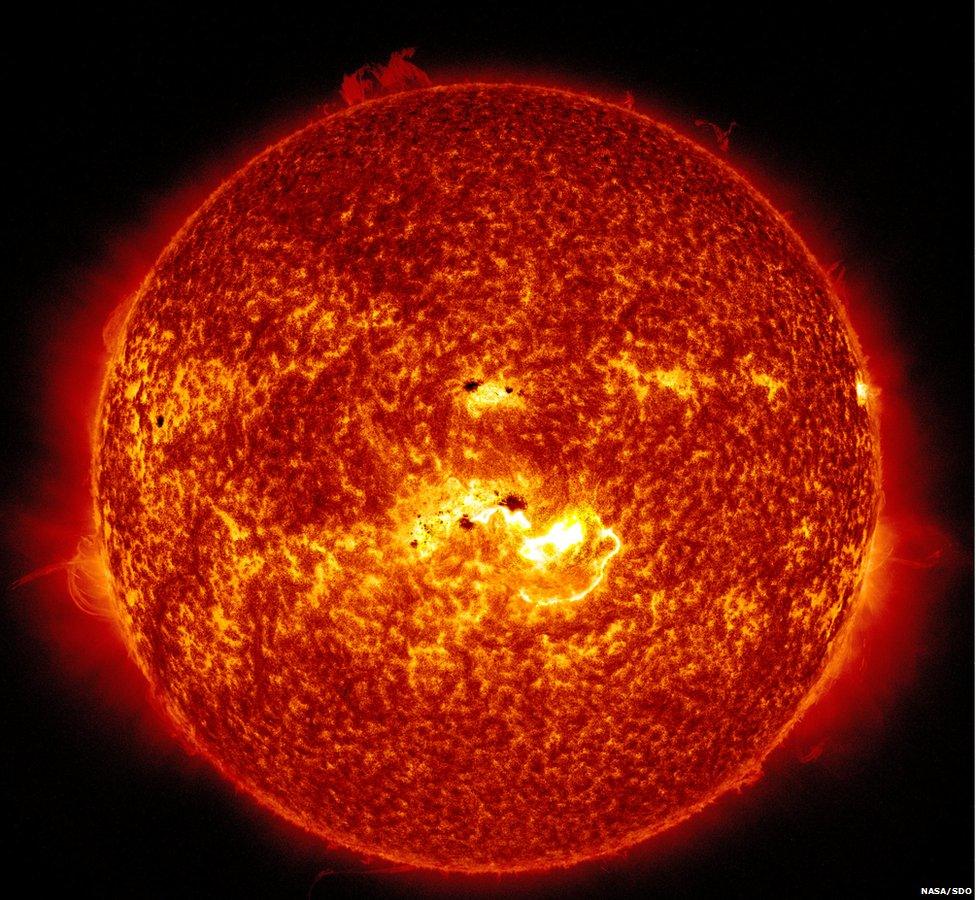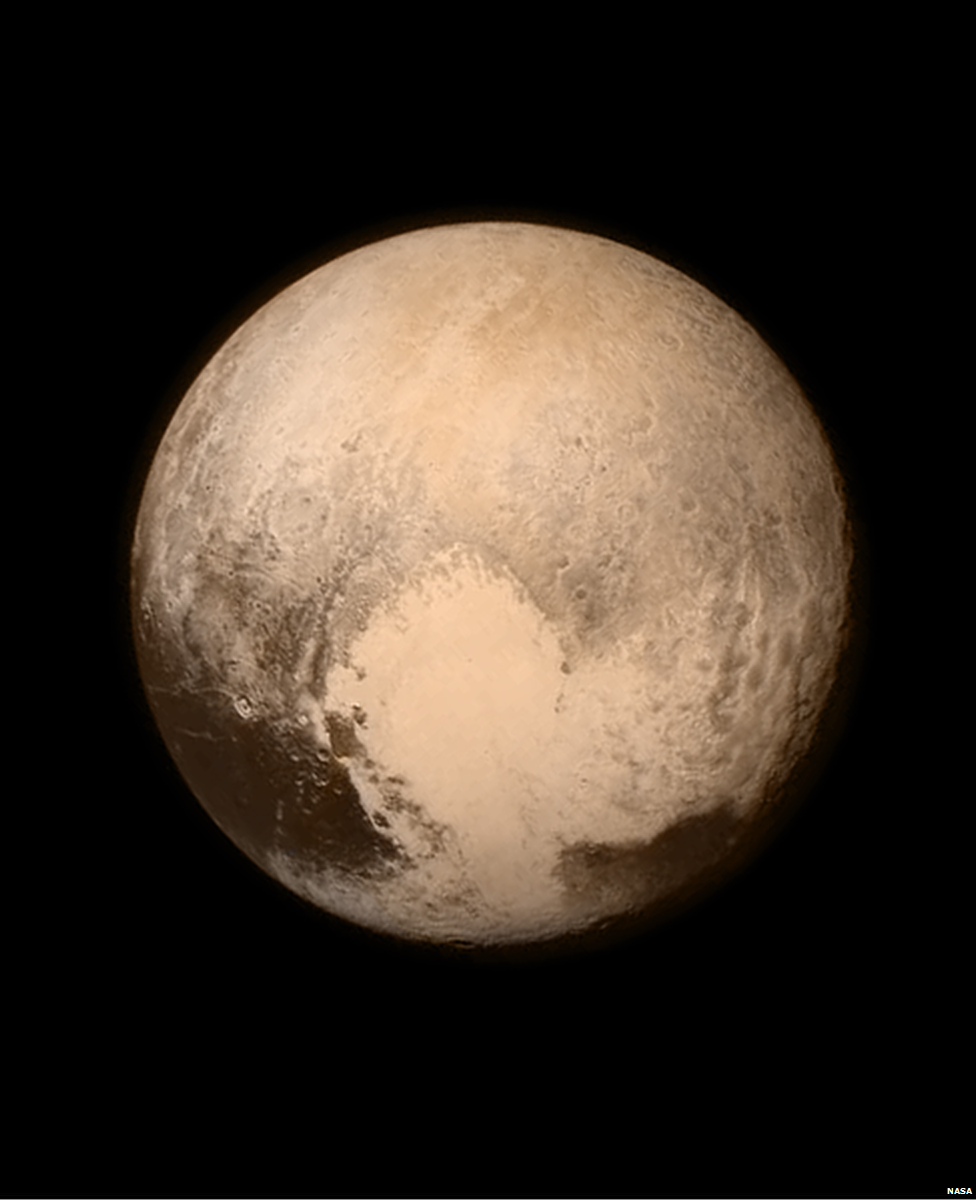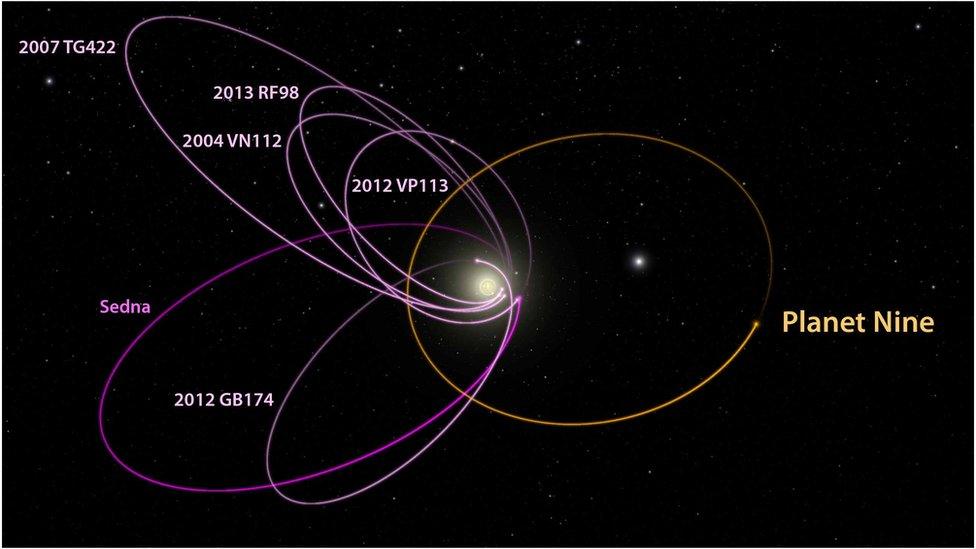Planet Nine: How to become a planet
- Published

This is how the ninth planet might look
There could be a ninth planet in our Solar System.
American astronomers from the California Institute of Technology (Caltech) say there is strong evidence suggesting there is.
Being a planet isn't easy. There's more to it than moving in the right circles.
You may remember that Pluto was demoted from planet status in 2006 when the International Astronomical Union (IAU) created rules about being a planet.
This is what it takes to gain planet status...
You need to revolve around the Sun

Just so you know, the Sun is the centre of attention. Always.
You need to be round
To be a planet you need to have a large enough mass to ensure that your own gravity could, in theory, pull you into a sphere. You need to be round or nearly round.
Or, as the IAU put it, you need "sufficient mass for self-gravity to overcome rigid body forces so that it assumes a hydrostatic equilibrium (nearly round) shape."
You need to get on with the neighbours
Others will have to be respectful and not get under your feet, otherwise things will get messy (think Celebrity Big Brother).
You'll have to dominate your route and ensure that you're the biggest thing in our orbit.
That's where Pluto went wrong.

Pluto actually crosses paths with Neptune, a damn sight larger.
That's what makes Pluto a dwarf planet. It's one of many dark and icy objects that makes up the Kuiper Belt - along with Eris, another dwarf planet.
Dr Jenny Shipway from Winchester Science Centre says the new ruling came into place because "if all these new Pluto-like objects were called planets, then we'd end up with maybe dozens of planets, most of which would be small rocks with wonky orbits".
"It seems natural to make a way to distinguish the large planets with near-circular orbits from all these other objects," she explains.
"In part, a planet is defined by the environment it lives in, rather than its own properties.
"It means if you take some objects out of the solar system, a dwarf planet could become a planet.
"People still argue about it and many would like the rules to change again. Personally I think a division is useful, but it's hard to know what rules are best to use to divide the groups."

"Pluto, it's behind you."
"There's no obviously clear divide between planets and dwarf planets," she explains.
"But the reason the rulings were made was because if every new large object that was discovered was called a planet, we'd have far too many of them in our Solar System."
So where do their names come from?
"Planets are actually named after gods and dwarf planets after creator gods," says Jenny.
Pluto is obviously an exception to the rule. It was named after the god of the underworld back when we classified it as a planet.
The team at Caltech believe they've found planet number nine but will it meet the three rules that apply? Watch this space.
For more stories like this one you can now download the BBC Newsbeat app straight to your device. For iPhone go here, external. For Android go here, external.